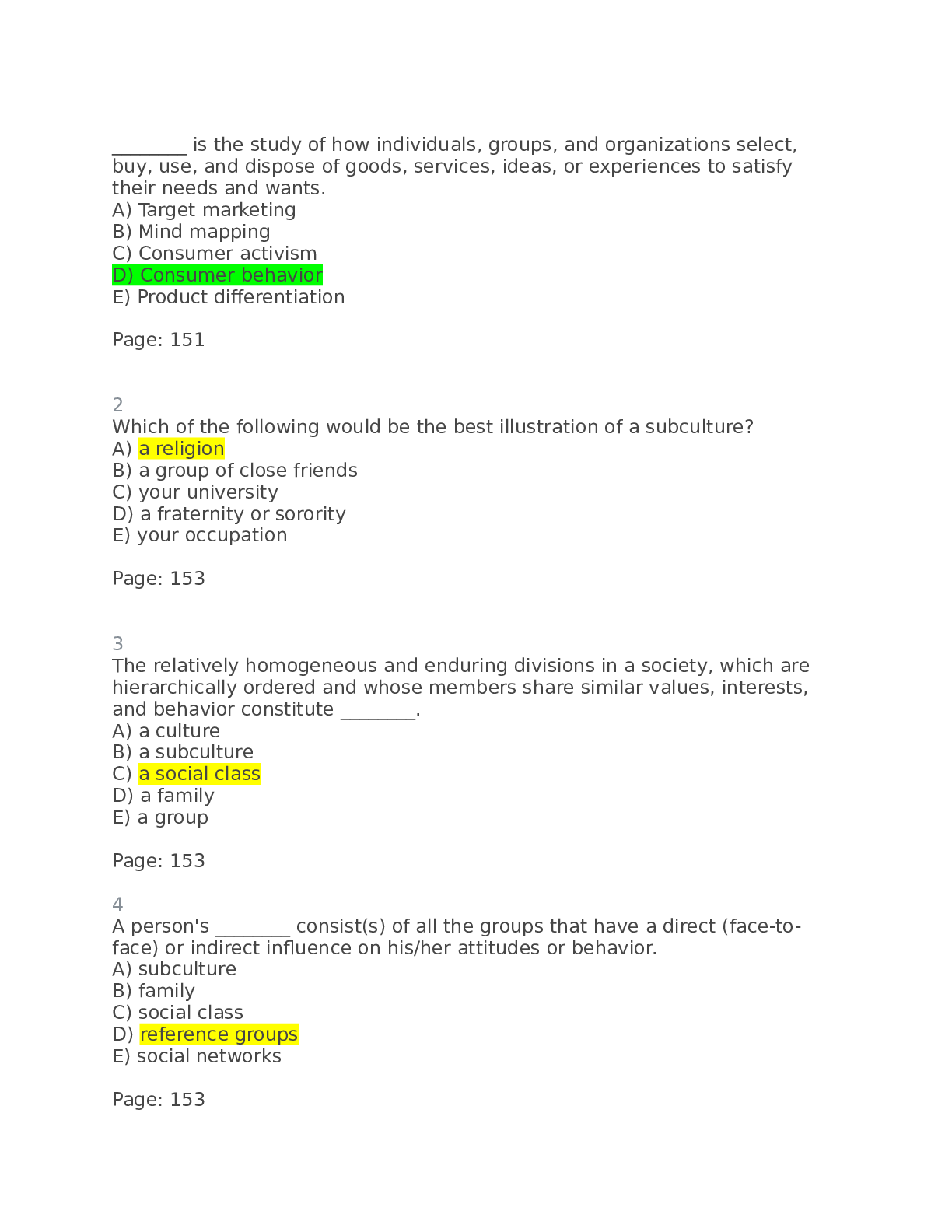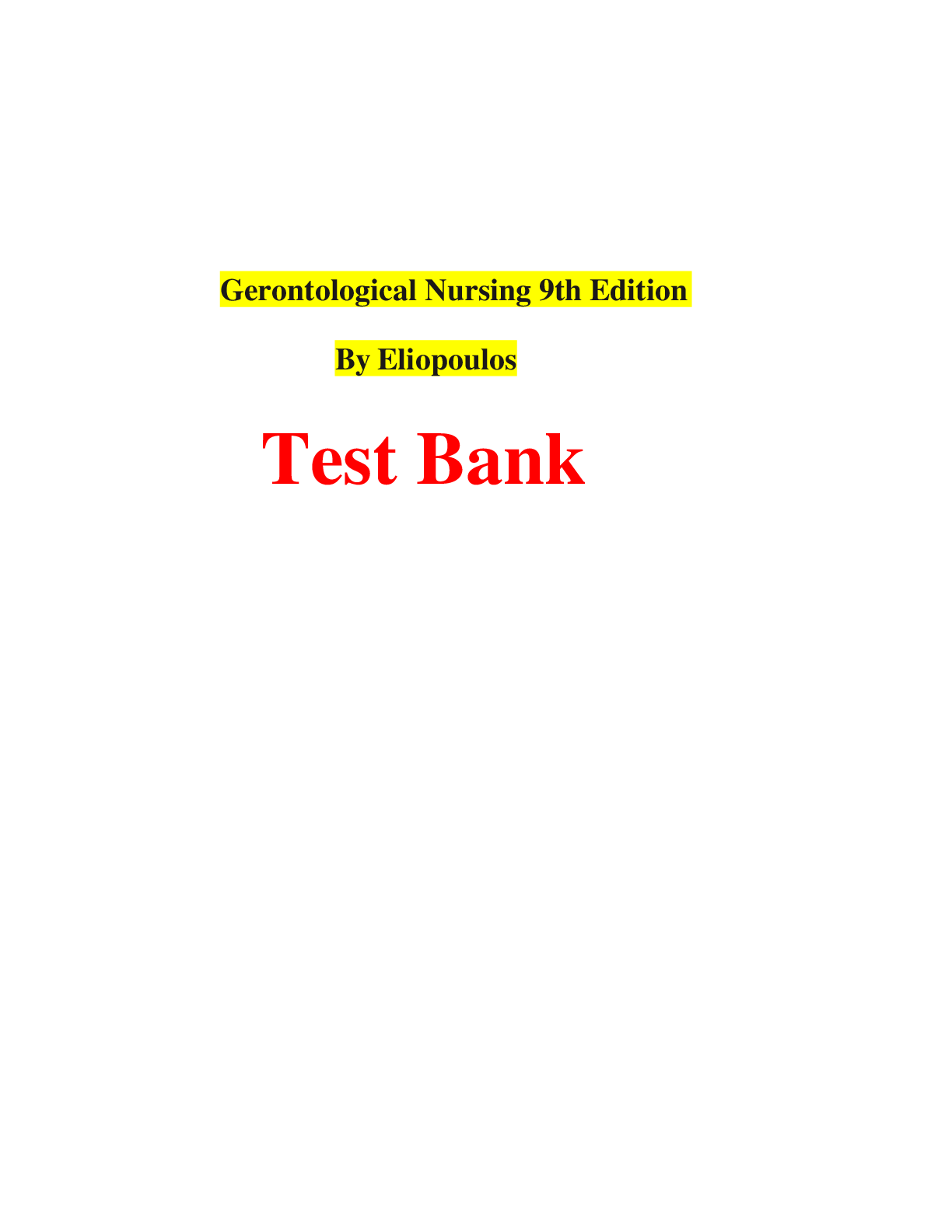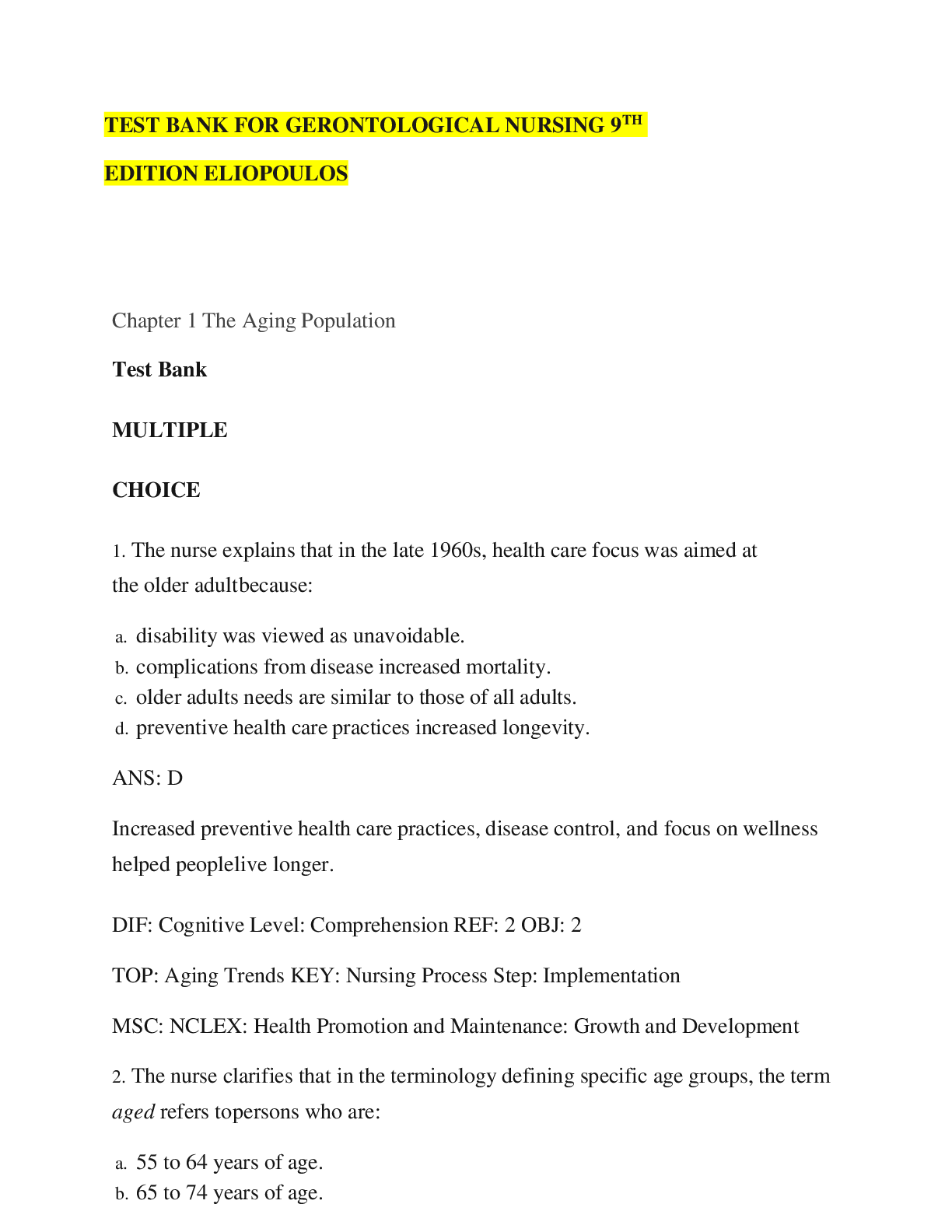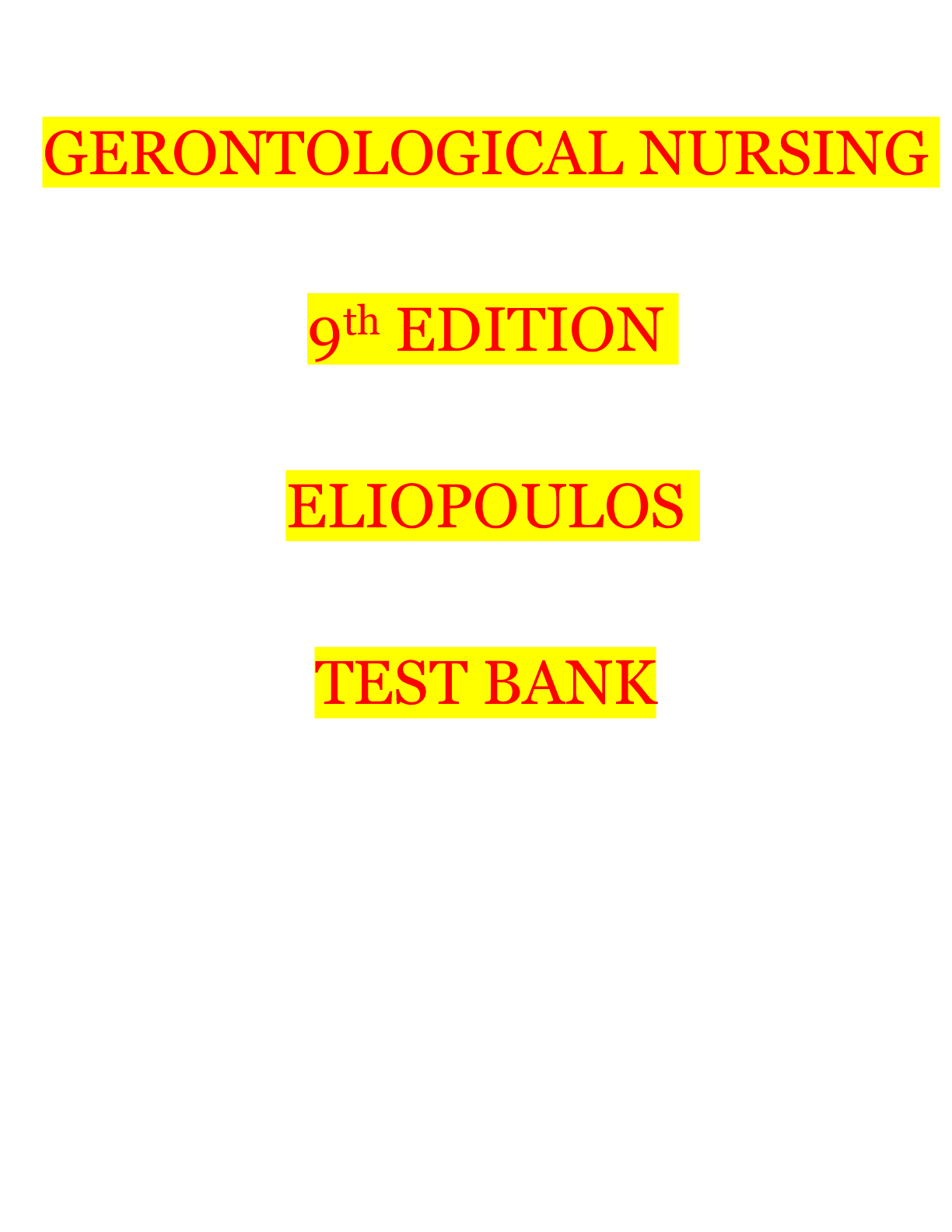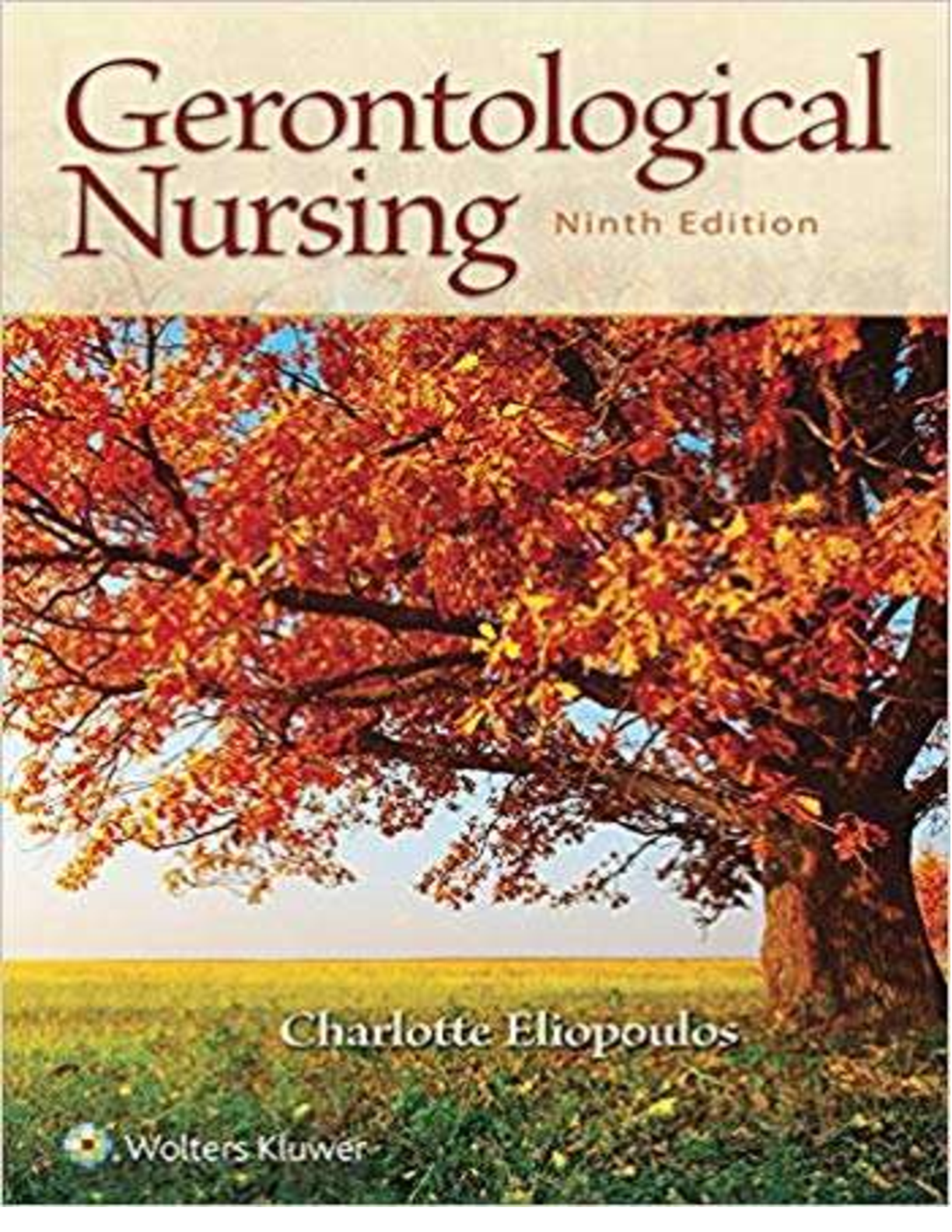Gerontological Nursing 9th Edition Eliopoulos Test Bank
Document Content and Description Below
Gerontological Nursing 9th Edition Eliopoulos Test Bank Chapter 1 The Aging Population Test Bank MULTIPLE CHOICE 1. The nurse explains that in the late 1960s, health care focus was aimed at the o... lder adult because: a. disability was viewed as unavoidable. b. complications from disease increased mortality. c. older adults needs are similar to those of all adults. d. preventive health care practices increased longevity. 2. The nurse clarifies that in the terminology defining specific age groups, the term aged refers to persons who are: a. 55 to 64 years of age. b. 65 to 74 years of age. c. 75 to 84 years of age. d. 85 and older. 3. The nurse cautions that ageism is a mindset that influences persons to: a. discriminate against persons solely on the basis of age. b. fear aging. c. be culturally sensitive to concerns of aging. d. focus on resources for the older adult. 4. The nurse points out that the most beneficial legislation that has influenced health care for the older adult is: a. Medicare and Medicaid. b. elimination of the mandatory retirement age. c. the Americans with Disabilities Act. d. the Drug Benefit Program. 5. The nurse clarifies that a housing option for the older adult that offers the privacy of an apartment with restaurant-style meals and some medical and personal care services is the: a. government-subsidized housing. b. long-term care facility. c. assisted-living center. d. group housing plan. 6. The 75-year-old man who has been hospitalized following a severe case of pneumonia is concerned about his mounting hospital bill and asks if his Medicare coverage will pay for his care. The nurses most helpful response is Yes. Medicare: a. pays 100% of all medical costs for persons older than 65. b. Part B pays hospital costs and physician fees. c. Part A pays for inpatient hospital costs. d. Part D pays 80% of the charges made by physicians. 7. The daughter of a patient who has been diagnosed with terminal cancer asks which documents are required to allow her to make health care decisions for her parent. The nurses most informative response is: a. Advance directives indicate the degree of intervention desired by the patient. b. A Do Not Resuscitate document signed by the patient transfers authority to the next of kin. c. A durable power of attorney for health care transfers decision-making authority for health care to a designated person. d. A living will transfers authority to the physician. 8. The daughter of a resident in a long-term care facility is frustrated with her 80-year-old mothers refusal to eat. The nurse explains that the refusal to eat is a behavior that is an: a. effort to maintain a portion of independence and self direction. b. indication of approaching Alzheimer disease. c. effort to gain attention. d. indication of the dislike of the institutional food. 9. The nurse clarifies that the conditions of a living will go into effect when: a. the patient declares that desire in writing. b. a family member indicates the desire for curative therapy to cease. c. two physicians agree in writing that the criteria in the living will have been met. d. the physician and a family member agree that the criteria in the living will have been met. 10. In the 1980s, Medicare initiated a program of diagnosis-related groups (DRGs) to reduce hospital costs by: a. classifying various diagnoses as ineligible for hospitalization. b. allotting a set amount of hospital days and prospective payment on the basis of the admitting diagnosis. c. specifying particular physicians to treat specified diagnoses. d. using frequency of a particular diagnosis to set a payment schedule. 11. When discussing extended care with a patient who has had a hip replacement and needs physical therapy, the nurse would recommend a(n): a. basic care facility. b. skilled care facility. c. subacute care facility. d. assisted-living residence. 12. The 80-year-old woman who is recovering from a stroke is being sent to an extended-care facility. She is concerned about the expense. The nurse can allay anxiety by explaining that Medicare will cover extended-care facility costs: a. for a period of 30 days. b. for a period of 45 days for physical therapy. c. for a period of 100 days for needed skilled care. d. until she is able to be discharged home. 13. The senior citizen political action group that uses volunteers and lobbyists to advance the interests of older adults is the: a. American Association of Retired Persons (AARP). b. National Council of Senior Citizens (NCSC). c. National Alliance of Senior Citizens (NASC). d. Gray Panthers. 14. The nurse gives an example of the caregiver who is guilty of elder abuse as the: a. daughter who uses her mothers Social Security money to purchase her mothers medication. b. son who puts an alarm on the front door to prevent his mother from wandering out of the house. c. wife who allows her mentally competent husband to refuse to take a bath for a week. d. frail spouse who is unable to bathe or change the clothes of her physically dependent husband. 15. The nurse cautions that the most frequent response to elder abuse by the abused older adult is: a. anger. b. physical retaliation. c. notification of authorities. d. nothing at all. 16. Many nurses today do not seek careers in gerontology because: a. the physical work is too difficult. b. their technological skills are not used. c. there is not enough challenge. d. there are limited options for employment. 17. The nurse clarifies that the term baby boomers refers to persons who: a. entered school in 1945. b. served in the military in World War II. c. were born between 1946 and 1964. d. were eligible for Social Security benefits in 2000. 18. Restraining an older adult in a recliner to prevent wandering is an example of: a. physical abuse. b. neglect. c. emotional abuse. d. self-neglect. 19. Nonprovision of medical care because of lack of finances is an example of: a. physical abuse. b. neglect. c. emotional abuse. d. self-neglect. 20. Health care workers eating a residents candy without permission is an example of: a. physical abuse. b. neglect. c. emotional abuse. d. self-neglect. ..................................................continued...................................................... [Show More]
Last updated: 1 year ago
Preview 1 out of 459 pages
Instant download
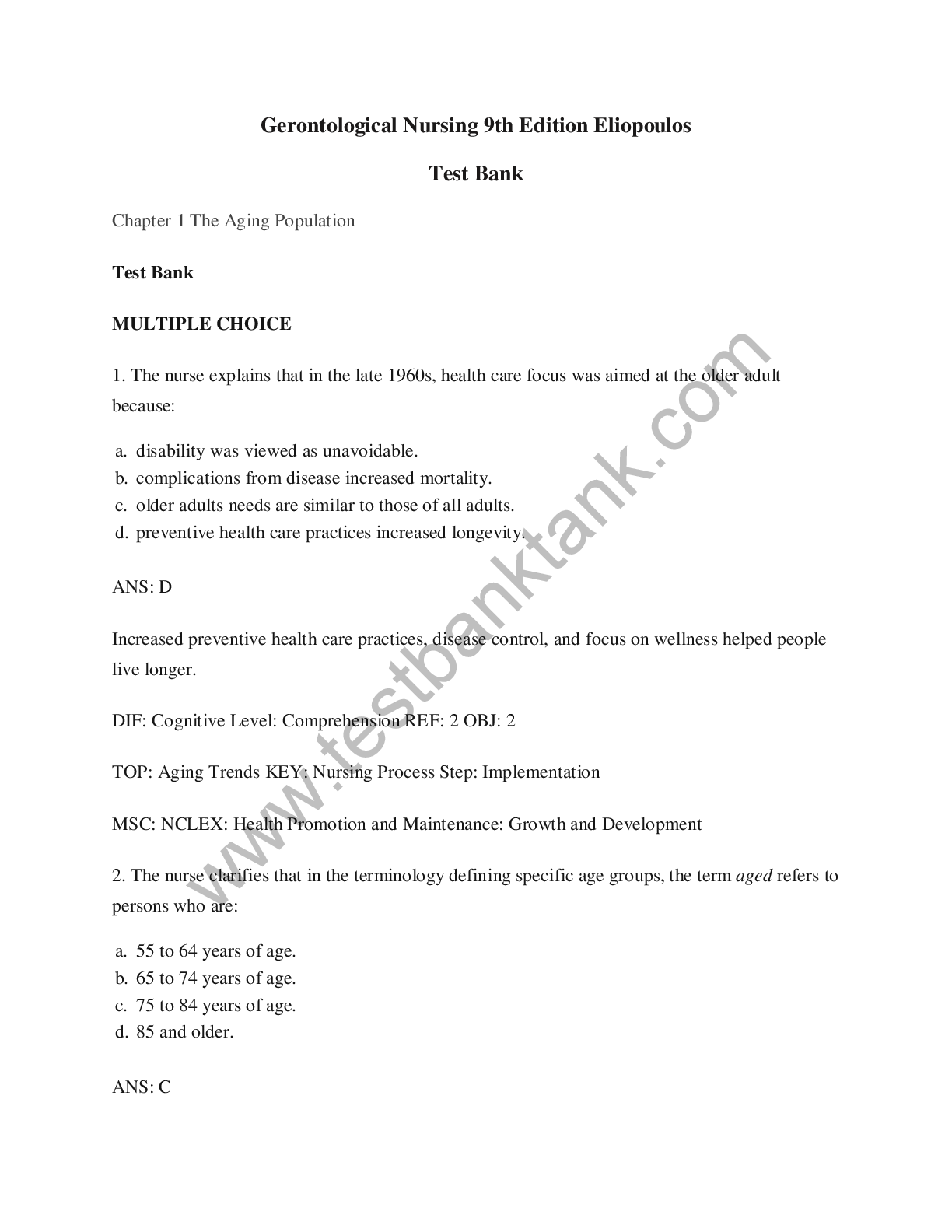
Buy this document to get the full access instantly
Instant Download Access after purchase
Add to cartInstant download
Reviews( 0 )
Document information
Connected school, study & course
About the document
Uploaded On
May 21, 2021
Number of pages
459
Written in
Additional information
This document has been written for:
Uploaded
May 21, 2021
Downloads
0
Views
53

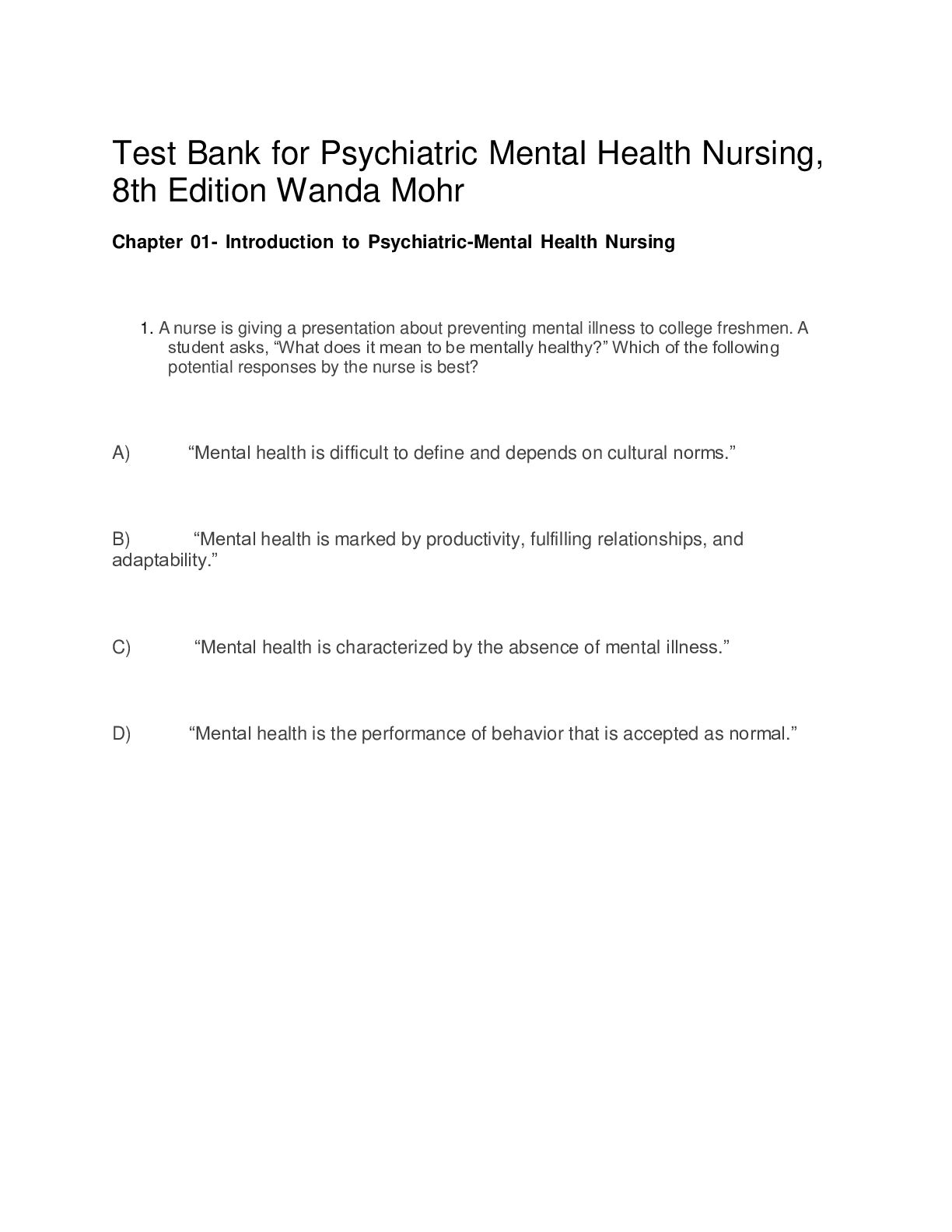
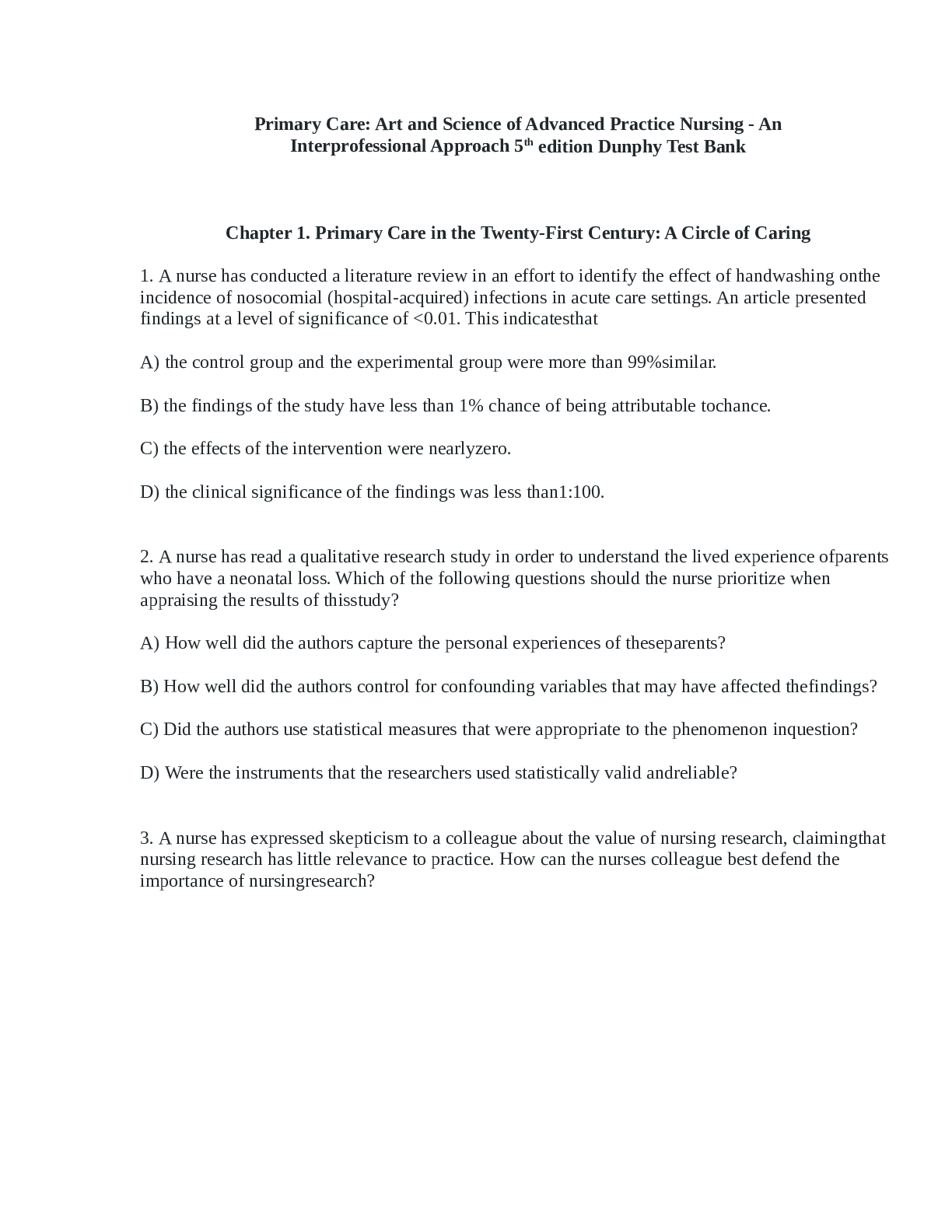
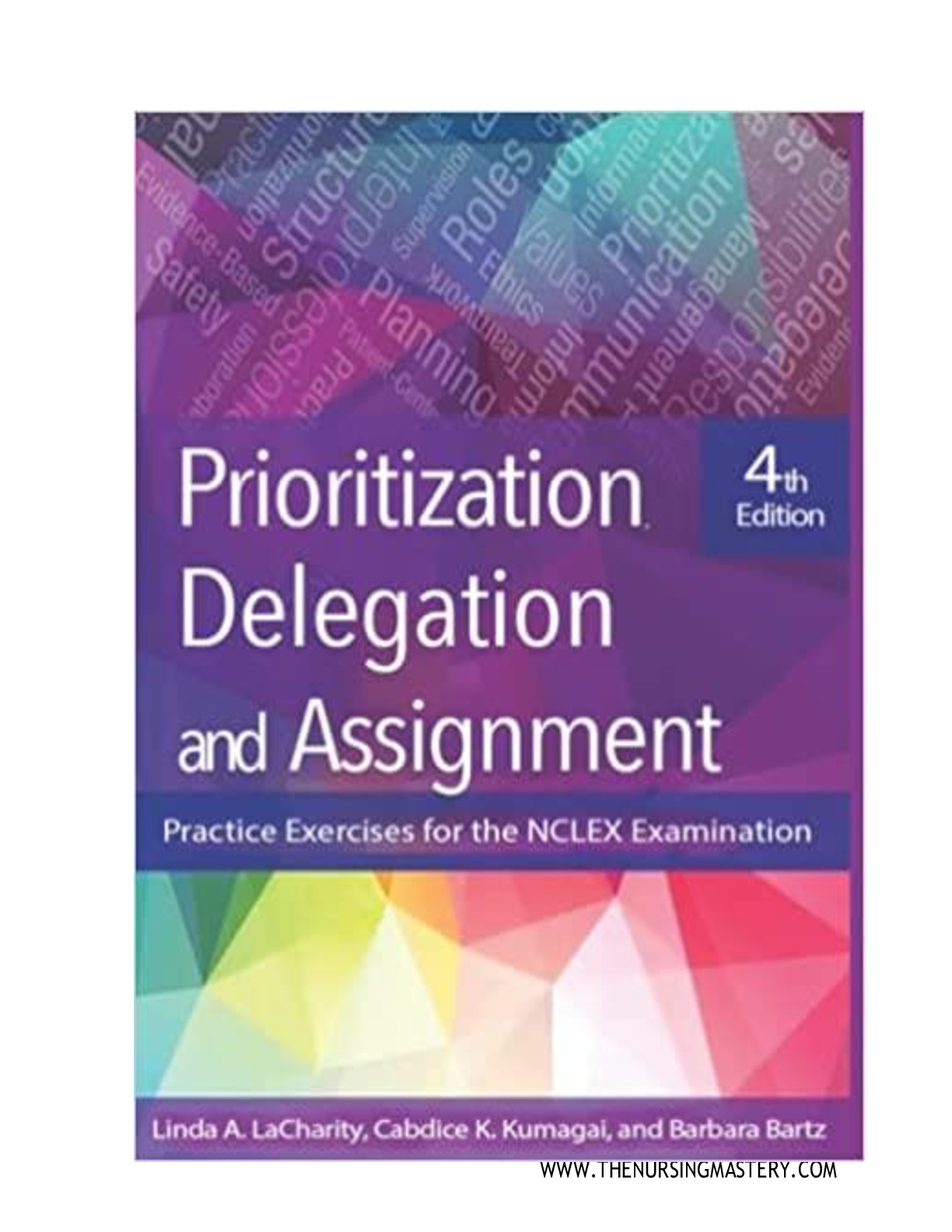
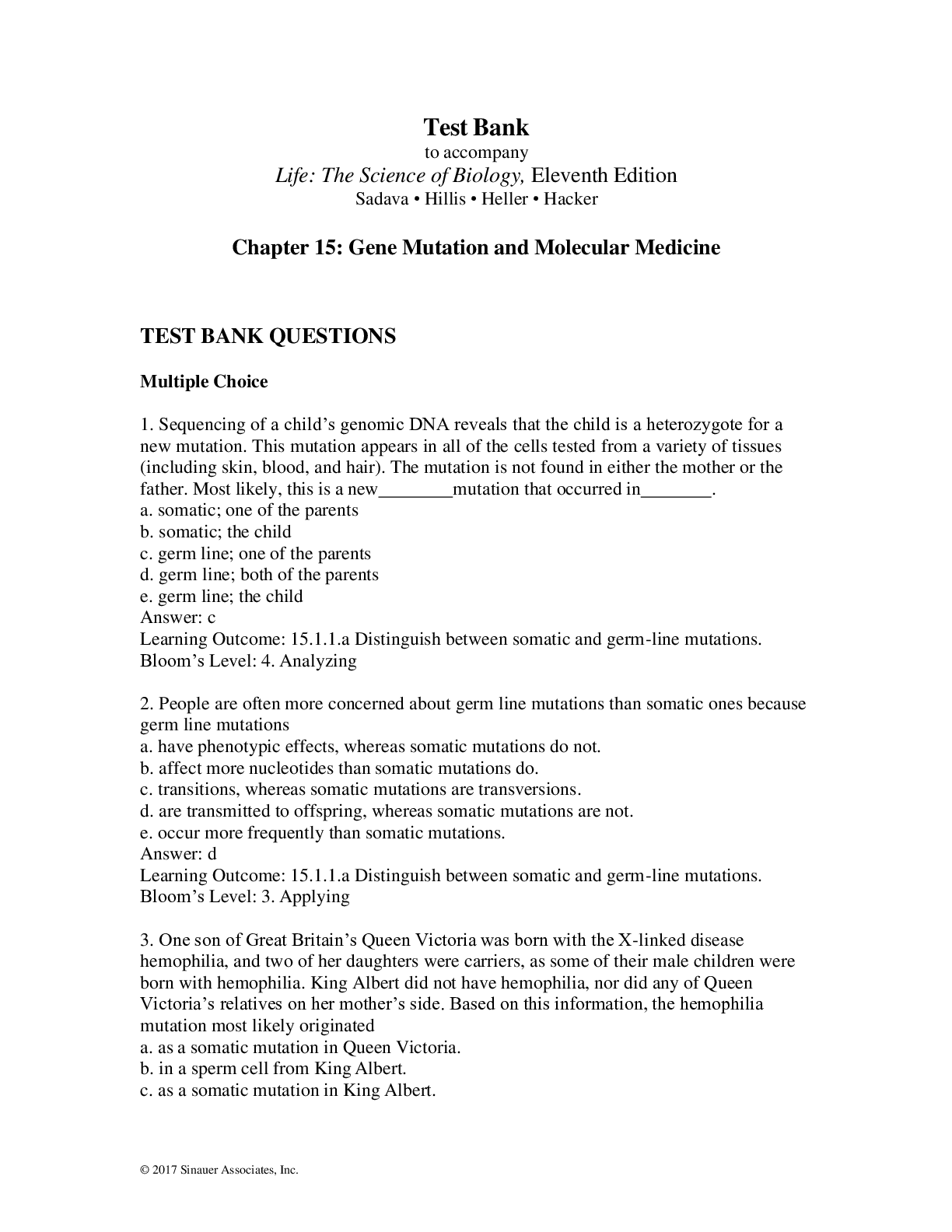
.png)
.png)
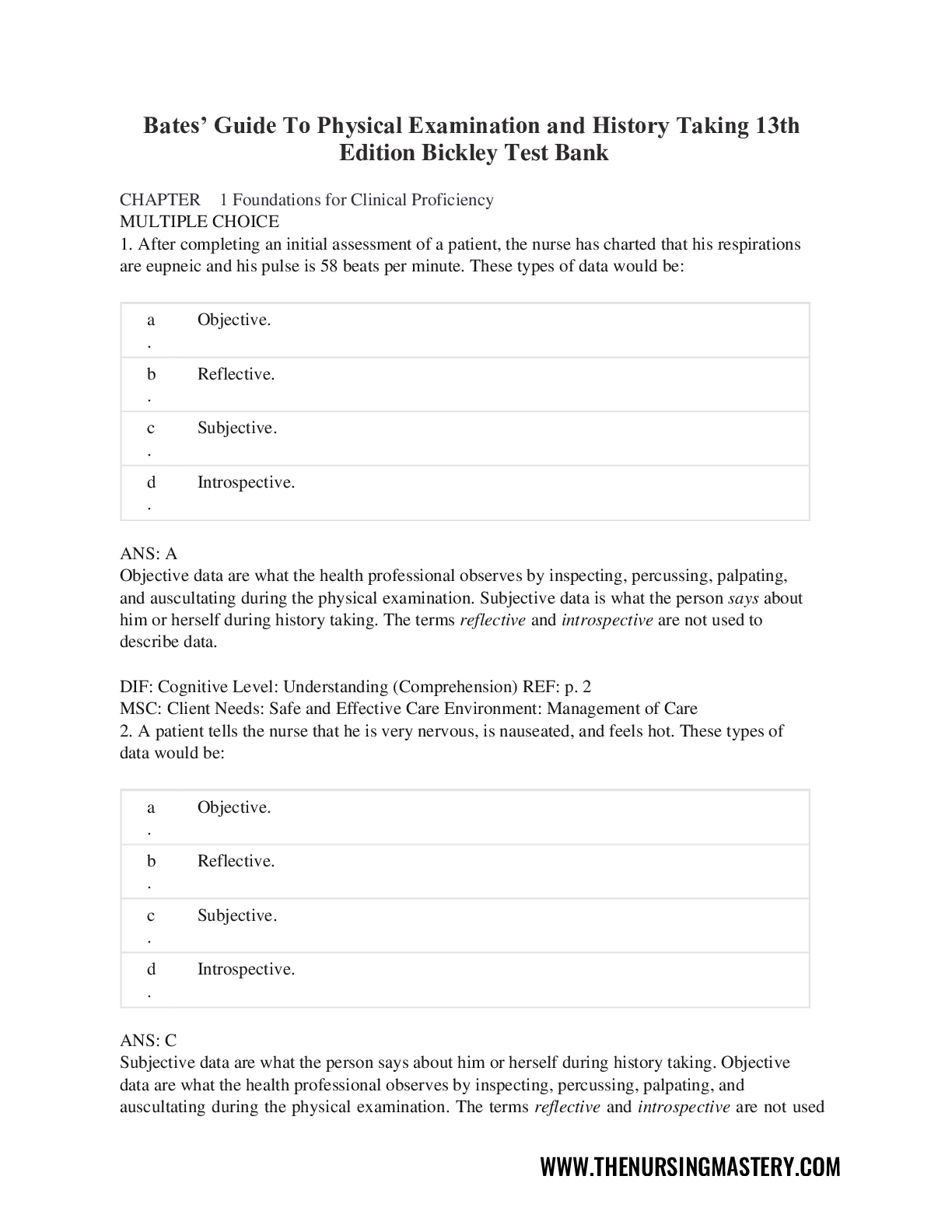
.png)
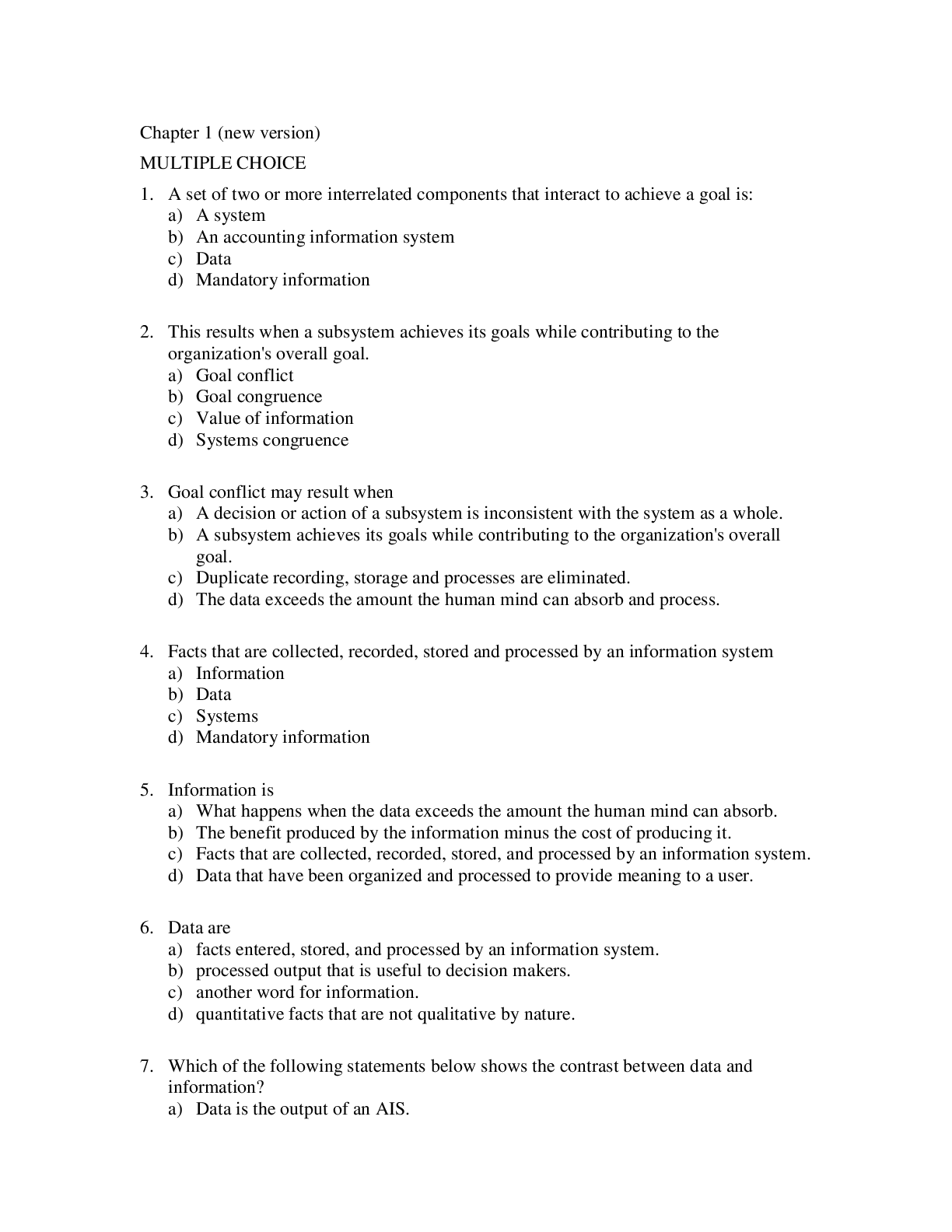
 (1).png)
